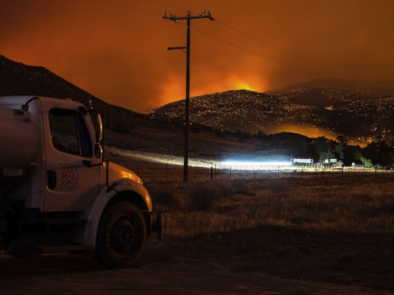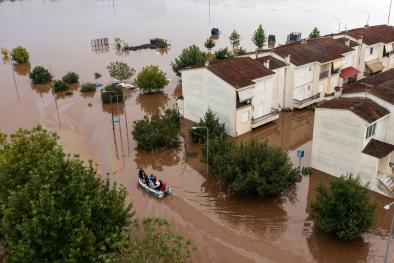Science Source
Another Record: Ocean Warming Continues through 2021 despite La Niña Conditions
Study key findings & significance
- The world's oceans are hotter than ever before, continuing their record-breaking temperature streak for the third straight year.
- The warming pattern is mainly attributed to increased anthropogenic greenhouse gas concentrations, offset by the impact of aerosols.
- The upper 2,000 meters (6,562 feet) of Earth’s oceans absorbed more than 227 excess zettajoules of energy, compared with the 1981-2010 average.
Related Content
Science Source
| Nature
Quantification of ocean heat uptake from changes in atmospheric O2 and CO2 composition
L. Resplandy, R. F. Keeling, Y. Eddebbar et al
Science Source
| Science
Anthropogenic Warming of Earth's Climate System
Sydney Levitus, John I. Antonov, Julian Wang et al
Science Source
| Science
Detection of Anthropogenic Climate Change in the World's Oceans
Tim P. Barnett, David W. Pierce, Reiner Schnur
Science Source
| Science Advances
Improved estimates of ocean heat content from 1960 to 2015
Lijing Cheng, Kevin E. Trenberth, John Fasullo et al
Event
Marshall Fire December 2021
An urban firestorm fueled by hurricane-force winds incinerated nearly 1,000 homes and structures in and around Boulder, Colorado in just one day, making it the most destructive wildfire in the state's history. Climate change, primarily caused by the extraction and combustion of fossil fuels, supercharges fires like the Marshall Fire through increased temperatures and exacerbated drought. In all, an estimated 6,000 acres were burned by the fire.
Related Content
Headline

Nov 17, 2023 | Climate Nexus Hot News
Utility Responsible For Wildfire, CA Report Says
Headline

Oct 26, 2023 | Climate Nexus Hot News
The Planet is ‘Under Siege,’ Scientists Say
Headline

Oct 11, 2023 | Climate Nexus Hot News
Climate Change Forcing Children to Move
Headline

Sep 20, 2023 | AP
In a state used to hurricanes and flooding, Louisiana is battling an unprecedented wildfire season



